Can a Facebook friend request be 'harassment'?
- Published
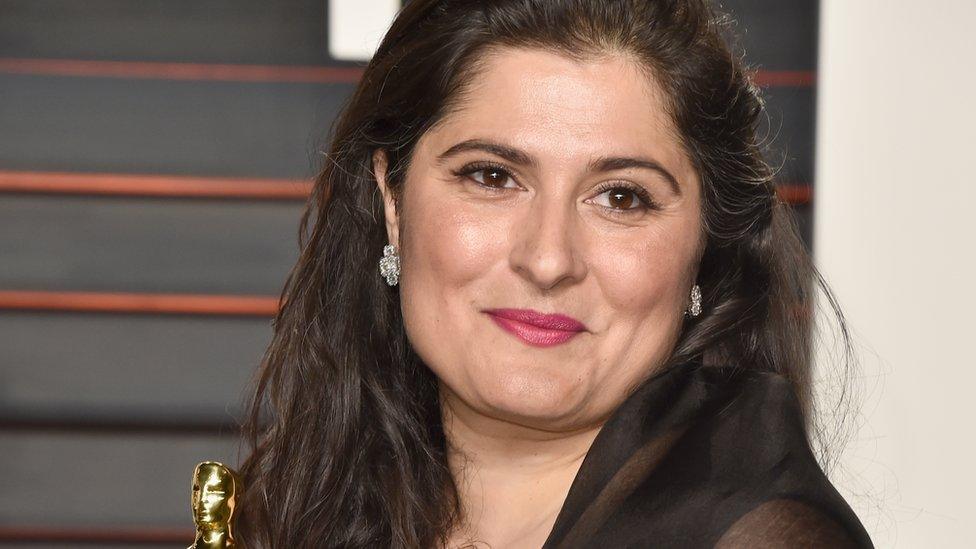
A filmmaker touched off a debate in Pakistan revolving around one question - can a Facebook friend request ever be considered harassment?
It began with a visit to the hospital by the sister of Oscar-award winning Pakistani filmmaker Sharmeen Obaid-Chinoy. After the treatment, the sister received a friend request from her doctor.
That prompted an angry Twitter outburst by the filmmaker - and a social media storm about the definition of harassment:
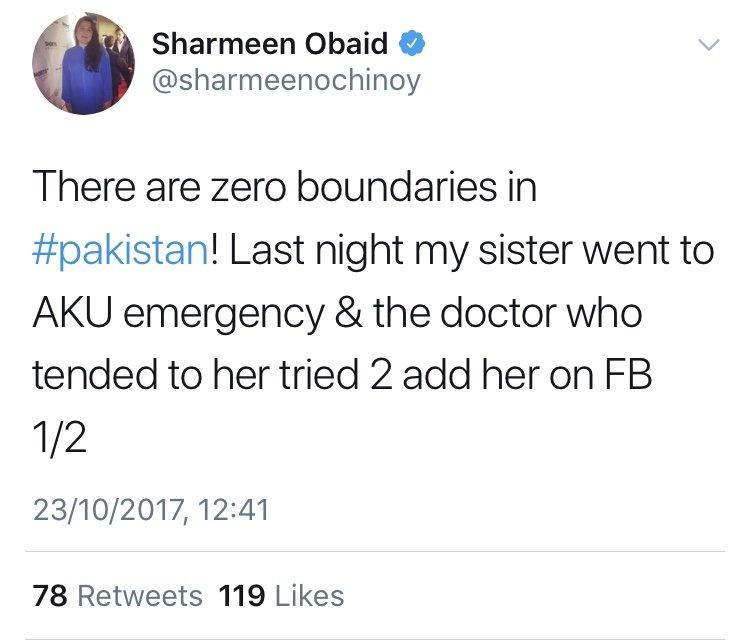
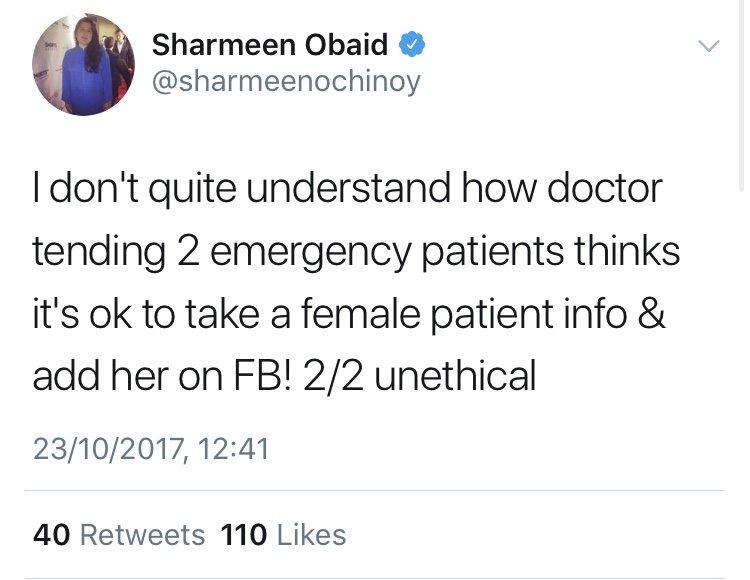
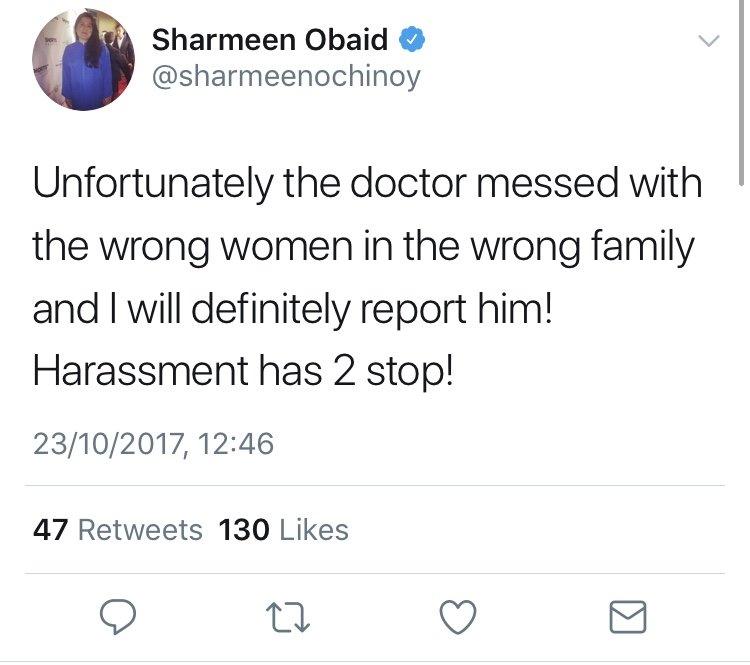
Obaid-Chinoy's description of the Facebook request as "harassment" triggered an angry response from many Pakistanis claiming she had overreacted. Others supported her, claiming the often abusive reaction she received revealed the misogyny of her critics.
One of Obaid-Chinoy's most vocal detractors was journalist Ali Moeen Nawazish, who wrote on his own Facebook page that comparing a social media request to harassment was "ridiculous." He added "Whats next, asking for a pen is harassment… Looking at someone for three seconds will be harassment???"
In his post, he also said that the claim "is actually taking away from real victims of harassment."

You might also be interested in:

The journalist concluded by criticising Obaid-Chinoy for "Pakistan shaming."
Nawazish later claimed that the doctor had been fired as a result of the tweets, however reports indicate that he has been suspended from Aga Khan University Hospital in Karachi while an internal investigation takes place.
Obaid-Chinoy, who won acclaim for her documentaries on "honour killings" and acid attack victims, has faced similar accusations in the past. She's been accused of being a "traitor" to Pakistan in relation to her work which exposes violent and misogynistic cultural traditions prevalent in certain parts of Pakistani society. Her tweet storm renewed those criticisms and she was repeatedly accused of having harmed the country's international image.
Some suggested she exemplified the phrase "wrong women in the wrong family" and called her an elitist. She, however, subsequently clarified she was referring to the fact that "women in my family are strong" and had not meant to "suggest a sense of privilege or power."
But that didn't stop many Pakistanis on Twitter from attacking the filmmaker. Some posted photographs of her with other men - apparently suggesting these images made her a hypocrite for complaining about alleged harassment. Facebook pages were created encouraging people to send Obaid-Chinoy friend requests.
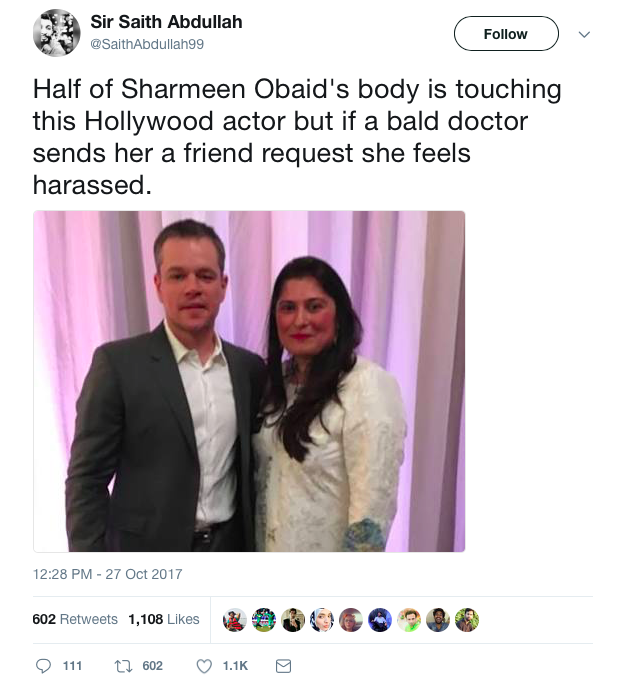
Many others, including both men and women, questioned whether a friend request amounted to harassment.
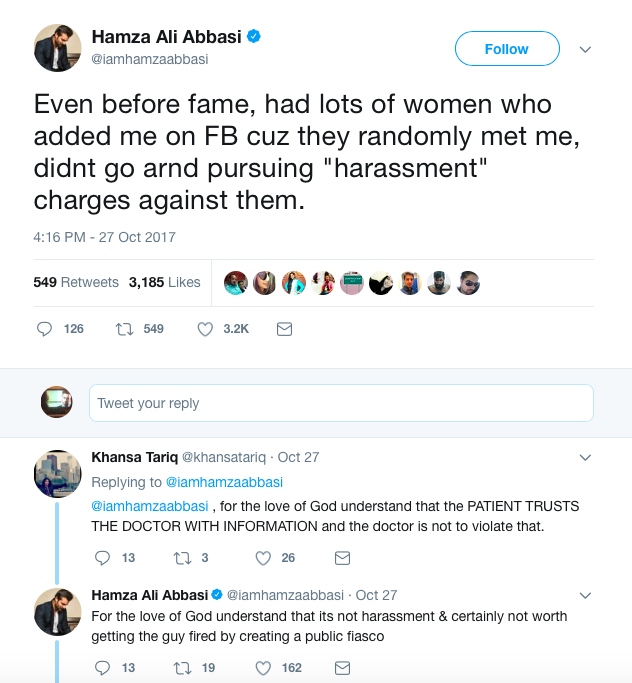
But Obaid-Chinoy did find some support in newspaper columns and on social media. Her defenders included Pakistani writer Bina Shah, who told the BBC she wasn't surprised by "the kind of abuse and vitriol" directed at the filmmaker.
"Any time you try to fight against (the patriarchy) you get an immediate backlash," Shah said.
In a subsequent statement Obaid-Chinoy wrote that "The conversation has unfortunately steered far from the safety of women, unchecked unethical practises & harassment."
She revealed that the doctor in question had conducted a "very private examination" of her sister before going online and "leaving comments on photographs & trying to add her as a Facebook friend."
She clarified she regularly receives "unsolicited friendship requests from strangers" but that she considered this episode a "serious breach of patient-doctor privilege."
The Pakistan Medical and Dental Council referred the BBC to their ethical guidelines, which don't specifically mention social media but do state that a "professional position must never be used to pursue a relationship of an emotional or sexual nature with a patient, the patient's spouse, or a near relative of a patient."
The doctor at the centre of the controversy has not been named publicly. He has, however, reportedly received a job offer from another hospital in Karachi.
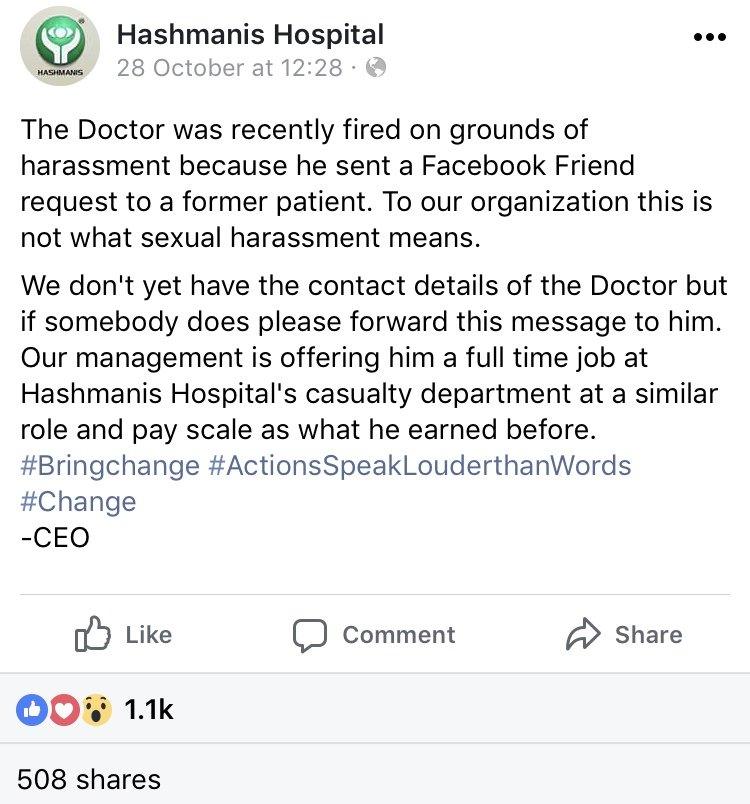
Blog by Secunder Kermani
More from Trending: 'Lack of compromise' brought Civil War
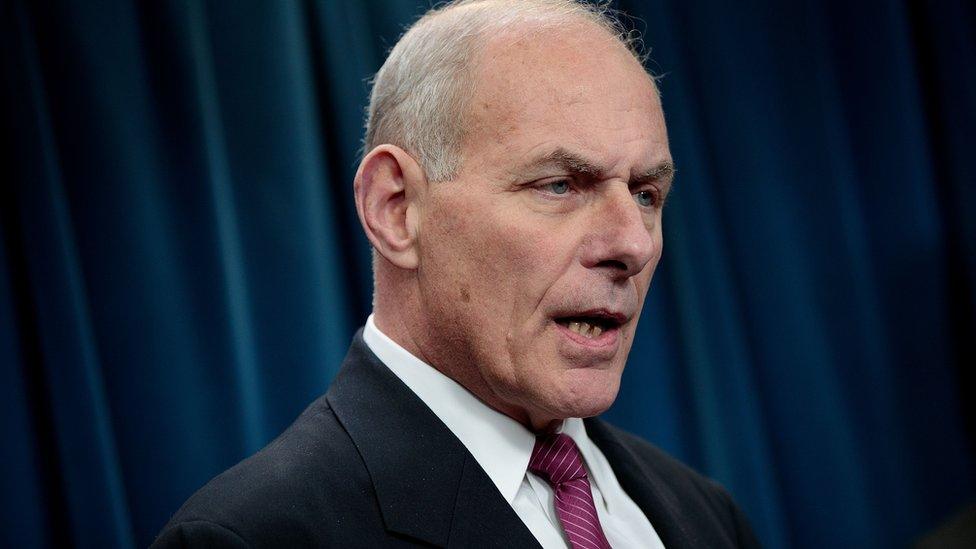
President Trump's chief of staff, General John Kelly, claims an inability to compromise caused the American Civil War. The social media reaction came quick... READ MORE
You can follow BBC Trending on Twitter @BBCtrending, external, and find us on Facebook, external. All our stories are at bbc.com/trending.